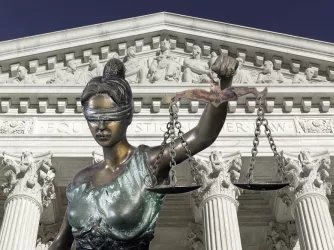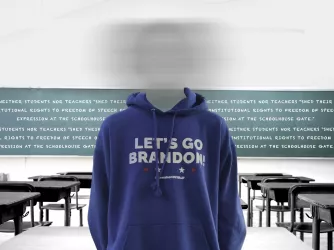Table of Contents
‘Oregonian’ on Failure to Lead at Lewis & Clark

As The Oregonian (Portland) writer Steve Duin notes, everyone is talking about the free speech controversy swirling around Lewis & Clark College. Everyone except the Lewis & Clark administration, that is. According to Duin, the college’s administration is sorely lacking in the kind of leadership and transparency necessary to help navigate the college through this and other controversies.
The case centers around two students—one African-American and one white—who were found guilty of creating a racially hostile environment due to racially-tinged jokes made with one another at a private party (among other charges). FIRE’s exposure of the college’s misdeeds has led to much criticism for the college. In his latest piece, Duin (who criticized Lewis & Clark’s handling of the case in an earlier column as well) speaks to Lewis & Clark professor Lyell Asher, student Musa Jemal Ahmed, and Dean of Students Anna Gonzalez. Asher and Ahmed criticize the lack of engagement from the administration, while Gonzalez doesn’t know what more the college can do.
Lyell Asher, a tenured English professor at L&C, argues there has been "a near total lack of transparency and accountability among our administrators," including the "misrepresentation" of the amiable beer-pong exchange to the faculty as "racist chanting."
And Ahmed maintains that Lewis & Clark -- like the powers that be at the University of Oregon -- waited far too long to engage students on issues that captivated, or threatened, the campus.
"We told them repeatedly they should talk to students about these things," said Ahmed, who organized a six-hour demonstration in front of the Frank Manor House last December and took his case to the Board of Trustees earlier this month.
"As adults, we should have conversations around these issues, led by professionals who are trained to have those conversations. And they refused."
Gonzalez disagrees: "I don't know what more we can do. We talk about these issues. All the time. But we need to protect all parties. There are times when the students who have survived this, or have been victimized by this, are telling us, 'I don't want this to be a big deal.'"
Ahmed rebuts Gonzalez’s defense:
These things can be dealt with if people honest with each other and they trusted students to be mature adults. … We're very engaged in issues of politics and social justice. They just don't trust us with the information. There was lots of discussion about the football players. All types of students were talking about these incidents. It's unfortunate the administration didn't capitalize on this and join us.
FIRE, of course, hasn’t had much better luck than Lewis & Clark’s students and faculty. All we’ve been able to extract from the college—after thoroughly documenting its abuses of the students’ rights—was a statement that it “may” get back to us in the future.
Keep reading The Torch for more updates from Lewis & Clark.
Recent Articles
FIRE’s award-winning Newsdesk covers the free speech news you need to stay informed.

Supreme Court must halt unprecedented TikTok ban to allow review, FIRE argues in new brief to high court

Australia blocks social media for teens while UK mulls blasphemy ban

Free speech advocates converge to support FIRE’s ‘Let's Go Brandon’ federal court appeal
